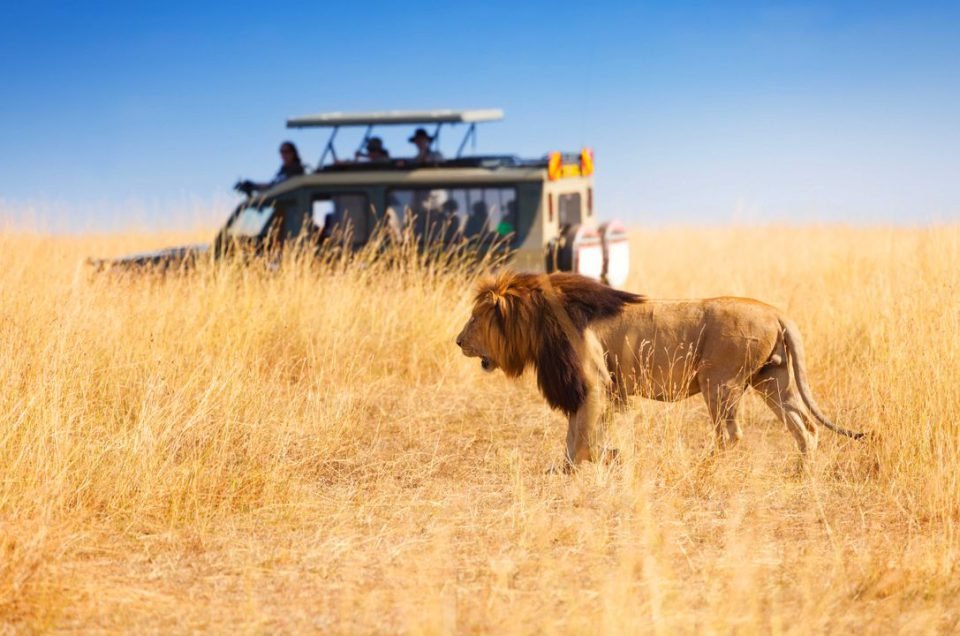An East-African safari is an exciting, educational, adventurous, and truly unique experience. To help you make the most of it, here are the 5 dos and don’ts of going on safari.
Whether you’re looking to go on a family holiday, your honeymoon, or a solo vacation, an East African safari is an unforgettable experience that will offer you an exciting mix of wildlife adventure, unique cultural encounters, and spectacular scenery!
At Zootopia Game Drives, we can create a customized safari itinerary that takes you away from the stresses of modern life and immerses you in the raw and powerful wilderness of Africa; it’s the perfect way to recharge your batteries and explore untamed places.
Safari Etiquette: The 5 Dos and Don’ts of an African Safari
There’s nothing like an East African Safari to create memories that will last for a lifetime. In fact, being surrounded by the incredible sights and sounds of the bush, and getting up close to Africa’s wildlife is at the top of most peoples’ bucket list.
But do you know the dos and don’ts when it comes to an African safari? Whether you’re a newbie, or this is your hundredth trip, here are the top 5 things you should keep in mind while out in the park or game reserve:
1. Don’t Call or feed the Animals!
Whether you’re out on a game drive, or a nature walk, you should do your best to keep your talking to a minimum and your ears open. Don’t try to get the animals’ attention by clapping, whistling, or banging on the side of the vehicle.
This could have two negative effects:

Caption: Not feeding the animals in an African safari is one of the first dos and don’ts you should remember
Loud noises can spook the wildlife, causing them to move further away from you.
By shouting, clapping, or whistling, you could trigger a charge in larger animals such as elephants, putting yourself, your guide, and your group in serious danger.
Remember: Even if your noise doesn’t endanger yourself, or your fellow safari goers, you will be disturbing the animals, which in turn alters their behavior, and prevents you from having an authentic experience.
At the same time, never try to feed the animals. Even if it was customary in the past, now it is completely forbidden. Feeding wild and zoo animals disturbs their usual food gathering or hunting activity. It is harmful to their health and may hurt them in the long term. Furthermore, some animals are easily frightened and can injure someone attempting to feed them.
Moreover, even if you carry food on the safari, ensure you never leave traces behind. Do not litter or throw plastic items out the window, as they might be discovered and become hazardous to animals.
2. Leave No Trace & Get Proper Vaccinations
An African safari takes you into the very heart of the remote wilderness, so act with respect towards the natural environment: remember this is a delicate ecosystem that can easily be damaged. By being careless, not only will you disrupt the ecology of the area, but you may even spread diseases.
Make sure you!
Get all your vaccines and hydrate properly while on African safaris.
Before leaving for an African safari, check what vaccines you need to take. Some African countries won’t allow entry without them, so it is better to check with your doctor. One of the common vaccines required is the yellow fever vaccine.
Other vaccines you may need to include are Hepatitis A and B, Meningitis, Typhoid fever, Polio, Rabies, and Zika. Also, don’t forget to check the requirements for the coronavirus vaccine.

If you’ve had all the necessary vaccinations and are ready to go on safari, don’t forget to drink plenty of water. Temperatures in Africa may reach dangerously high levels, especially during the summer. Therefore, you may face the danger of dehydration if you do not drink enough. Drink lots of fluids, bring a bottle with you when going out, and take sips regularly. And as we mentioned before, make sure to use refillable bottles or flasks instead of plastic ones to avoid littering or throw pieces of plastic out of the window.
Make sure you Never!
Leave the roadways and drive into the bush.
Remove any natural material or plant life from the reserves or parks.
Smoke while on safari.
Tip: While you should take lots of photos to document your incredible experience, don’t use GPS coordinates when snapping pictures of the animals, as poachers can use this information.
3. Avoid using devices during activities.
The whole point of traveling to Africa and participating in a African safaris is to immerse oneself in nature. Therefore, you can choose to either switch off your phone if you don’t use the camera or put it on silent mode. Imagine seeing an animal for the first time and having your phone start ringing. Its sounds may be louder in the open, frightening the animals.
Therefore, respect nature and the animals and try to be as quiet as possible. If you carry a professional camera, turn off the blitz and the beeping sound. Do the same with your phone’s camera, and turn off location tracking. Poachers can use that information to find the animals, which can be disastrous. That is one of the essential African safari dos and don’ts to remember.
4. Be Aware of the People Around You
People pay thousands of dollars to go on safari in Africa and for most, this represents a truly once-in-a-lifetime experience, so try to be as respectful as possible, both when you’re out on a game drive, and when you’re at the lodge.
Be respectful and listen to your guide.
That is a golden rule that you should never break. Your guide is responsible for your safety throughout your safari, so always listen carefully. If your guide tells you to do something, do it without hesitation. For instance, if they ask you to lower your voice, it suggests they may have heard or seen something you haven’t and don’t want to frighten the animal. Guides will also warn you to stay inside the vehicle for safety reasons. If you encounter predators or shy animals on a walking safari, your guide will usually tell you to halt moving or avoid eye contact with them. In that situation, you must obey their directions without discussion.
You should avoid:
Talking too much or too loudly.
Excessive cellphone usage.
Obscuring other peoples’ views by constantly holding up your phone to take videos.
Interrupting or distracting your tour guide.
If you embrace the serenity and silence of your beautiful surroundings, you’re guaranteed to have a much more rewarding safari experience.
5. Don’t Be Rude to the Locals
Meeting the local communities is an important part of going on safari, and when you do meet the locals, consider greeting them in their language. This can be a simple, ‘Hello, how are you?’ because the effort represents an important step in acknowledging local cultures.
However, you should maintain a fine balance and not go overboard.

Captions: Meeting the locals will be a rewarding and fulfilling experience as long as you follow the dos and don’ts of an African safari
When you are in the local community, do not:
Hand out candy or sweets to the children.
Give out gifts of money.
Take photos of people without asking them, or your guide if it’s okay first.
Ask a hundred questions or requests, especially before properly greeting the people you meet.
When you meet the locals, you must not infringe on their privacy. Act authentic and aim to build meaningful connections with them, rather than walls.
Call Today
Are you planning your first safari? Our experienced travel agents are committed to guiding you through this exciting process. Whether you require advice on visas and safari etiquette, or you’re looking for a customized itinerary that can meet all your needs, our team is always on hand to help.
Contact us today at +256 750 383994.







